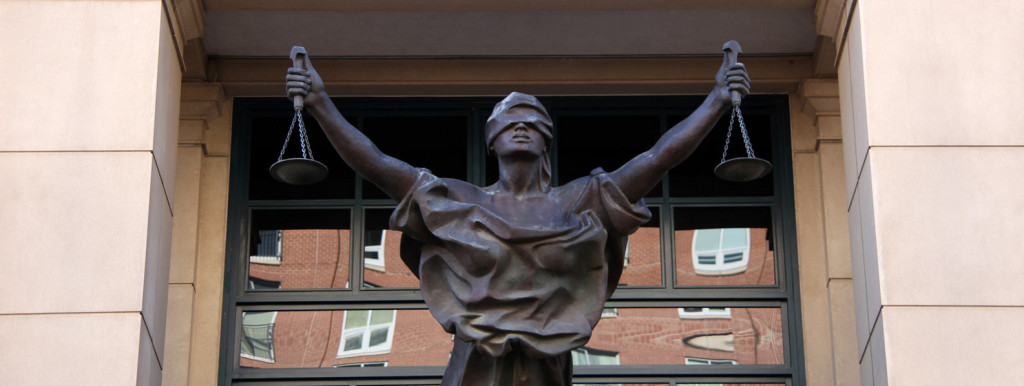Insurance Company to Pay $350,000 in Punitive Damages for False “Injury Fraud” Accusation
Posted on by Mussio Goodman
The BC Supreme Court has ordered ICBC to pay an injured claimant more than $350,000 due to the corporation’s ‘malicious’ and ‘odious’ false accusations of making a fraudulent injury claim.
Yesterday’s decision in Arsenovski v. Bodin 2016 BCSC 359 underscores the court’s strong discontent for malicious prosecution by ICBC over perceived fraud cases. Substantial damages were awarded to the plaintiff including $350,000 in punitive damages against ICBC.
In January 2000, Mrs. Arsenovkski (the plaintiff) and her husband were crossing an intersection in Burnaby when a left turning car struck Mr. Arsenovski. Mrs. Arsenovski also fell in the intersection and suffered bruising.
The Arsenovskis reported the accident to ICBC and signed an initial statement. In the following months, an ICBC special investigator submitted a report to Crown Counsel (RTCC) recommending that multiple criminal charges be laid against the Arsenovskis for advancing a fraudulent claim.
Acting on this advice, Crown Counsel charged Mrs. Arsenovski with the offence of making a false statement contrary to the Insurance (Motor Vehicle) Act, which was eventually thrown out.
Mrs. Arsenovski sought to hold ICBC, its adjuster (Mr. Bodin) and its special investigator (Mr. Gould) accountable for malicious prosecution, claiming that they intentionally misstated evidence to advance a criminal charge against her. Ruling in favour of Mrs. Arsenovski, Madam Justice Griffin stated:
[384] Not only were the public resources of ICBC wasted by the malicious prosecution of Mrs. Arsenovski, it was foreseeable that this would lead to wasting of the public resources of Crown counsel and judicial resources on the day the case came to trial. Mr. Gould also encouraged other public agencies to take action against her without reasonable grounds to do so, namely health and immigration authorities. The wasting of such public resources to so vindictively pursue Mrs. Arsenovski is deserving of the highest level of condemnation.
[395] While the community would find it reasonable for ICBC to fight fraud, I am confident that the residents of British Columbia would find it outrageous for a public corporation to use its resources maliciously. The conduct that occurred here must be condemned and punished to reflect the community’s censure and to ensure that the message is brought home to the corporation and its employees not to engage in this kind of misconduct again. The residents of British Columbia are entitled to expect professional, objective treatment by the employees of ICBC, as well as an appropriate degree of cultural sensitivity towards people who are recent migrants from other countries.
In her conclusion Madam Justice Griffin further denounced ICBC and the outrageous conduct by the special investigator involved in the malicious prosecution of the plaintiff:
[423] What happened to Mrs. Arsenovski was odious: a newcomer to a strange country, unable to communicate in the local language, she experienced the shock of seeing her husband hit by a car and she fell down too. Having experienced this upsetting event, still worried about her husband’s health, and having reported minor injuries to ICBC, she then experienced the wrath of ICBC and its special investigator, Mr. Gould.
[424] Mr. Gould, acting as an ICBC SIU investigator, submitted an RTCC recommending that Mrs. Arsenovski be charged with making a false statement, and she was so charged. He was motivated to dissuade civil claims against ICBC. He did not have objectively reasonable grounds for believing that Mrs. Arsenovski had committed an offence. He did not have a subjective belief in her guilt.
[425] Mr. Gould’s RTCC was materially misleading. I have concluded his conduct amounts to an abuse of his office, and that he and ICBC are liable to Mrs. Arsenovski for the tort of malicious prosecution.
[426] The malicious prosecution brought fear and shame to a vulnerable person. The criminal charge against Mrs. Arsenovski was only stayed on the day of the criminal trial. The stain she feels on her character as a result of being charged criminally might never be erased.
This judgement is a clear rebuke to ICBC for using intimidation tactics to suppress civil injury claims and for being far too overzealous in cases they may think are fraudulent.


